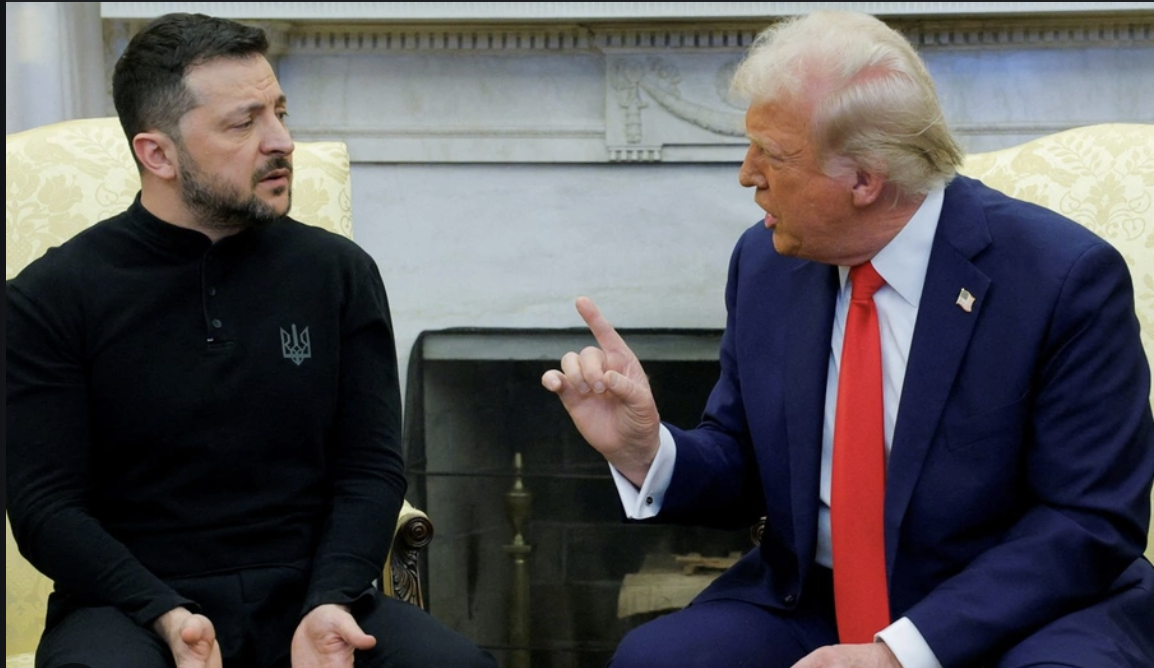President Trump and Ukrainian President Volodymyr Zelensky had a heated exchange in the Oval Office on Friday. The meeting quickly turned into a shouting match. The confrontation started when Zelensky tried to discuss Russian President Vladimir Putin’s trustworthiness.
This caused Trump to lose his temper. Trump ended the debacle with a controversial statement. “In World War III news, we’re on the other side now,” he said.
This highlighted his alignment with Putin. The unprecedented scenes in the Oval Office appalled Western allies. They came after weeks of changes in transatlantic relations led by the new White House administration.
The administration is pushing an “America First” agenda. US Secretary of Defense indicated that Kyiv joining NATO was unrealistic. This upended the alliance’s stated policy while handing Russia a major concession.
He emphasized that the US will no longer prioritize European and Ukrainian security. Vice President JD Vance made critical remarks to European leaders in Munich. He accused them of suppressing free speech and failing to address internal threats.
Trump had already wrongly accused Kyiv of starting the conflict. He labeled Zelensky a “dictator.” The fiery showdown in the White House led to the Ukrainians being instructed to leave. They were accused of being ungrateful for American military support.
Clash highlights shifting transatlantic dynamics
Western nations quickly signaled their continued support for Zelensky and Ukraine. On Saturday, Zelensky arrived in London.
British Prime Minister Keir Starmer embraced him in front of the TV cameras. Zelensky also met with King Charles at Sandringham House. At a crucial summit in London, European unity and allyship with Ukraine were on full display.
Efforts to forge a path toward a ceasefire and ramp up military support for Kyiv were discussed. France and Britain proposed an alternative peace deal for Ukraine. It involves a month-long limited ceasefire.
French President Emmanuel Macron mentioned that countries would enter a “coalition of the willing” to defend the deal. Zelensky has not indicated his agreement with the proposal. Russia has already rejected the idea of European troops as peacekeepers.
It remains uncertain whether this proposal will gain traction with the White House. The White House prefers direct peace talks with Moscow, excluding Ukraine or Europe. From the meeting, it became clear that US support remains crucial for Ukraine peace efforts.
Starmer reiterated that any plan would need “strong US backing.”
Russian President Vladimir Putin has been tight-lipped about the Oval Office fracas. However, Russian state media indicates that Moscow is now anticipating talks aimed at rebuilding the US-Russia relationship. There’s talk of a Trump-Putin summit being fast-tracked.
This weekend underscored the ongoing complexity and volatility surrounding the Russia-Ukraine crisis. It showcased the friction between allies and the critical need for cohesive strategies moving forward.













